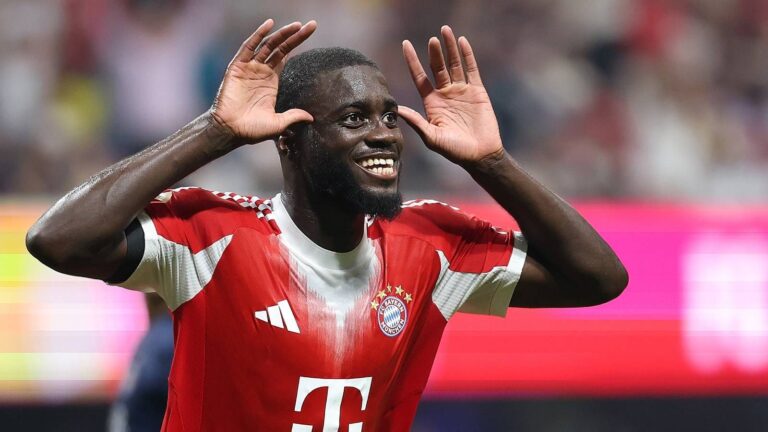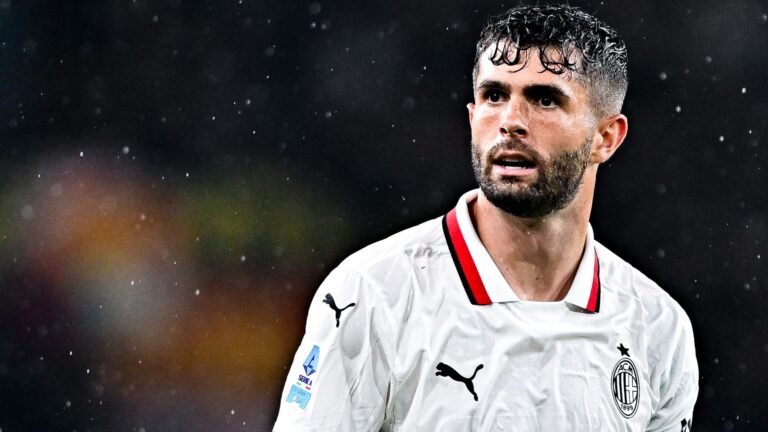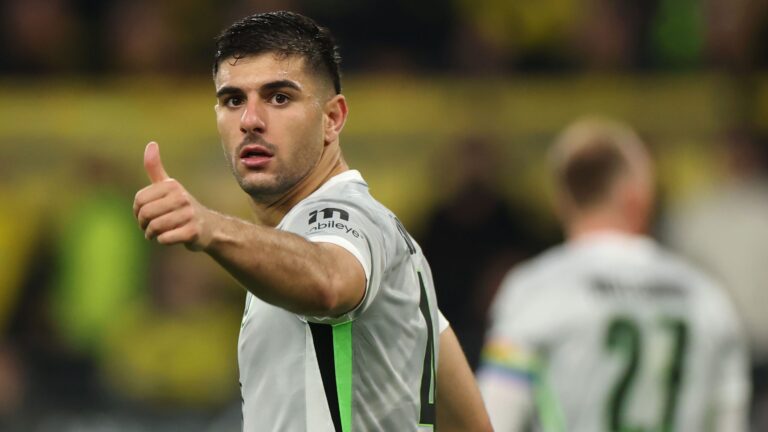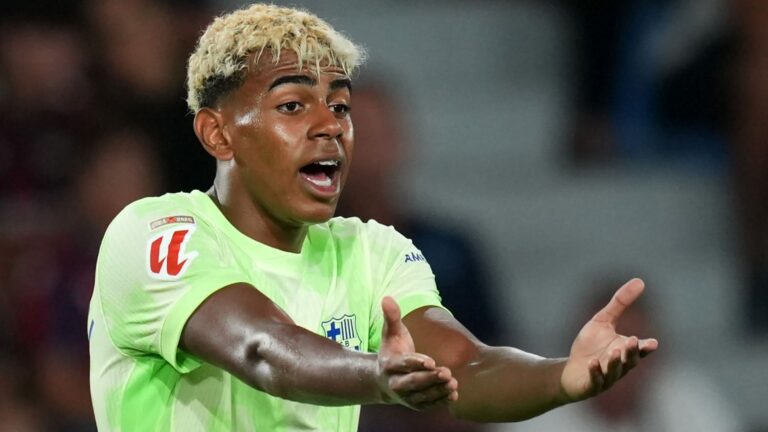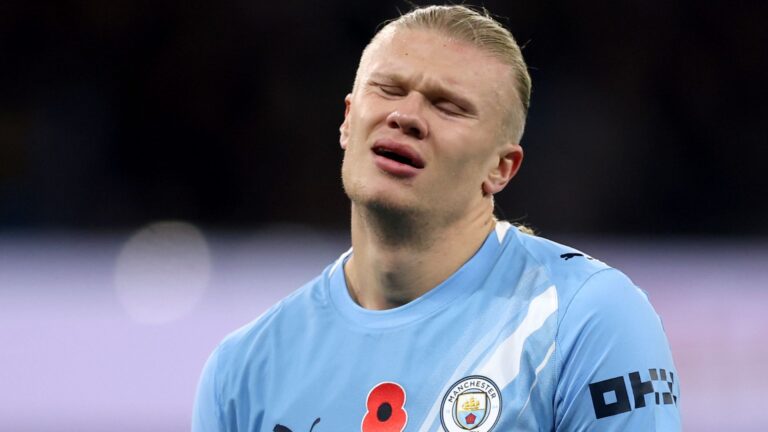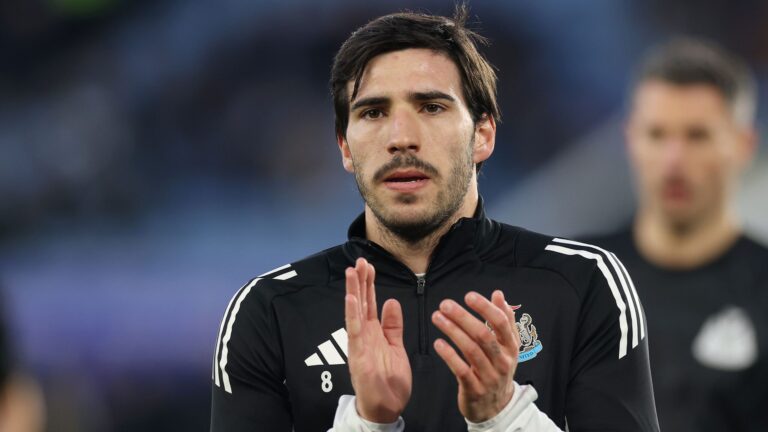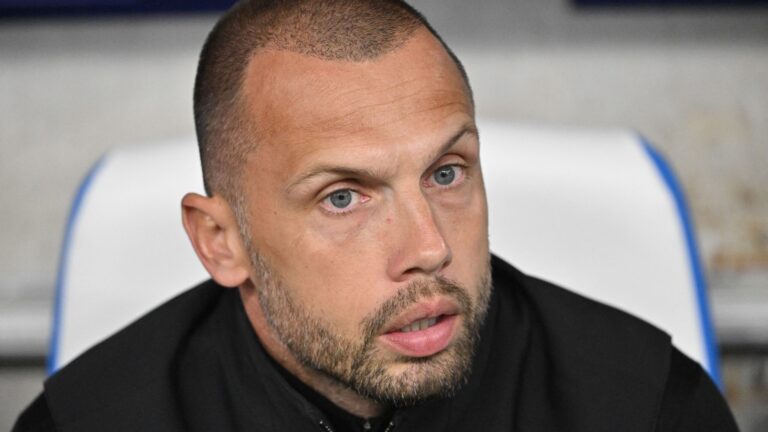Why Manchester United Stands Firm on Kobbie Mainoo’s Loan Denial
The young Manchester United star, Kobbie Mainoo, has ignited widespread interest by pushing for a short-term loan to boost his playing time, as rival teams closely observe the unfolding drama. This scenario reflects the hurdles budding footballers encounter when striving for consistent opportunities at elite Premier League outfits like Manchester United, where squad depth often limits breakthroughs.
- Kobbie Mainoo is actively pursuing a loan exit from Manchester United
- The club has outright rejected his proposal and is pushing for him to stay
- Other teams around Europe are vigilantly tracking his status



Key Motivations Behind Mainoo’s Quest for a Loan Opportunity
During a crucial meeting earlier this week, the 19-year-old standout expressed his loyalty to Manchester United while pointing out that scarce minutes on the pitch are stalling his development. With the 2026 World Cup on the horizon, he maintains that extended time as a substitute might undermine his global prospects, akin to a fledgling tennis player opting for more tournaments to refine their game and secure ranking points.
Manchester United’s Commitment to Keeping Their Rising Talent
The club’s executives have been unequivocal in their response, stressing that Mainoo plays a vital role in their future plans. Early season results, including a 1-0 defeat to Arsenal and a 1-1 draw with Fulham without any involvement from Mainoo, have only strengthened their view that his advancement is best handled internally. Leaders are advising him to vie for spots in the lineup instead of leaving, similar to how emerging academy talents like Marcus Rashford were encouraged to overcome initial obstacles and establish themselves.
Escalating Discontent Over Insufficient Game Time
Over the past few weeks, Mainoo’s dissatisfaction has grown significantly. He has mostly watched from the bench during United’s opening Premier League matches and only started in their EFL Cup loss to a lower-league team, which ended in a surprising penalty shootout. Current standings place United in the middle of the table with a single point from their first two outings, heightening the urgency for youngsters like Mainoo to secure regular starting roles.
Exploration by Top European Clubs and Unfulfilled Prospects
Leading teams have expressed tentative interest in a temporary acquisition of Mainoo. For example, Bayern Munich explored options initially but withdrew without submitting bids, while Bayer Leverkusen, under a coach with prior ties, tried to pursue him but encountered funding issues. Likewise, Real Madrid’s early excitement for a loan arrangement has diminished due to tighter financial limits among La Liga sides this transfer period. Nevertheless, Mainoo is anticipated to remain with the team, with games such as the upcoming one against Burnley possibly providing the platform for him to demonstrate his abilities and reshape his future at the club.
Mainoo’s Loan Denial: What It Means for Manchester United
The Story Behind Mainoo and the Emerging Loan Discussions
The 18-year-old Kobbie Mainoo, a standout midfielder at Manchester United, has drawn considerable attention as the Premier League transfer window neared its end. News emerged that he wanted a loan spell to accumulate more senior-level exposure, perhaps with a Championship or mid-table Premier League club. Yet, Manchester United‘s hierarchy stood firm, choosing to retain this academy product within their ranks. This choice illustrates the team’s approach to cultivating young players during a transfer season bustling with Premier League loan activity and deals.
Mainoo’s swift ascent has been impressive and rapid. From his debut in the first team, he has displayed remarkable prowess, earning nods to iconic figures at the club. Despite this, the fierce competition from veterans such as Casemiro and Bruno Fernandes has restricted his opportunities, making a loan an appealing option for gaining routine play. The club’s refusal highlights their focus on sustained growth rather than quick fixes, a strategy prevalent in today’s football transfer landscape.
Factors Influencing Manchester United’s Firm Stance
Multiple elements probably shaped Manchester United‘s decision to turn down Kobbie Mainoo’s loan bid. Primarily, the organization is deeply committed to blending young stars into the squad, seeing Mainoo as essential to their core moving forward. Given the midfield’s vulnerabilities from injuries and variability, retaining him adds crucial depth for the rest of the Premier League campaign.
On the financial and tactical front, sending out a player with Mainoo’s potential could expose him to other clubs, possibly sparking competitive offers later. Accounts indicate that coach Erik ten Hag and the executives emphasized maintaining team cohesion before the deadline, particularly after new acquisitions. This tactic mirrors broader Premier League transfer patterns, where leading teams hold onto their best assets to stay competitive.
In terms of player progression, Manchester United may feel their top-tier training resources and experts offer superior development paths compared to a brief move elsewhere. Evaluations within the club might suggest Mainoo is nearly prepared for bigger responsibilities, rendering a loan superfluous.
Potential Outcomes for Mainoo’s Professional Journey
Denying Mainoo’s loan request presents a mix of opportunities and obstacles for his career trajectory. Positively, remaining at Old Trafford allows him to absorb knowledge from elite athletes and participate in high-stakes matches, an invaluable asset for an up-and-coming Premier League talent.
Yet, the lack of frequent appearances could lead to a slowdown in his progress. Analysts in football point out that talents like Mainoo frequently thrive from short-term loans that build their assurance and expertise, as demonstrated by peers who advanced after such experiences. This development might inspire Mainoo to intensify his efforts in practice, potentially unlocking more chances faster.
Advantages of Manchester United’s Youth Cultivation Strategy
Manchester United‘s choice to keep Kobbie Mainoo showcases the strengths of their robust system for developing young players. Below are the primary benefits:
- Improved Team Resilience: Holding onto prospects like Mainoo guarantees a steady supply of backups, lessening the reliance on last-minute signings during Premier League transfer times.
- Sustained Asset Worth: Growing internal talent helps the club dodge expensive acquisitions and could lead to lucrative sales down the line, much like with former standouts such as Marcus Rashford.
- Enhanced Team Unity and Support: Keeping academy graduates promotes a feeling of loyalty, which uplifts morale and strengthens bonds with fans.
This method not only cuts transfer expenses but also complies with Premier League rules on homegrown players, providing United with a strategic advantage.
Guidance for Emerging Players Dealing with Loan Challenges
For those in youth football confronting similar loan predicaments, consider this advice inspired by typical scenarios in Premier League transfers:
- Concentrate on Skill Enhancement: Leverage idle periods to hone abilities via specific exercises, like boosting passing accuracy or game strategy, to speed up advancement to the main squad.
- Pursue Guidance from Mentors: Engage with experienced teammates or instructors for advice, as Mainoo may be doing at Manchester United, to acquire knowledge without departing.
- Develop Mental Fortitude: Setbacks such as rejected loans can be discouraging, but treating them as steps toward improvement aids in building a lasting career.
- Track Transfer Timelines: Keep up with Premier League transfer guidelines and schedules to strategically plan requests, aligning them with personal growth goals.
These suggestions, based on stories from athletes who’ve handled comparable situations, stress the importance of endurance and active development.
Examples from Other Promising Young Stars
Examining parallel situations offers insight into how Manchester United is managing Kobbie Mainoo. Take Phil Foden at Manchester City, who stayed despite loan inquiries and eventually became a pivotal figure. His path demonstrates that remaining with the club can foster quick evolution if handled effectively.
Conversely, Mason Mount, who went on loan from Chelsea before rising to prominence in the Premier League, serves as another illustration. While Manchester United might steer clear of that path for Mainoo, it reveals the possible compromises. These instances underscore how teams like Manchester United balance short-term requirements with a player’s future potential in Premier League transfers, often favoring consistency above all.
Through these examples, both enthusiasts and aspiring players can grasp the nuances of football transfers and the handling of young talent.
Understanding Kobbie Mainoo’s Role at Manchester United
In the fast-paced world of Premier League transfers, decisions about young talents like Kobbie Mainoo can shape the future of a club. Manchester United, known for nurturing homegrown stars, recently made headlines by declining a loan request for their promising midfielder ahead of the transfer deadline. This move highlights the club’s strategy in developing young players while balancing immediate team needs.
Who is Kobbie Mainoo?
Kobbie Mainoo has emerged as one of the brightest prospects in English football, captivating fans with his technical skills and maturity on the pitch. As a midfielder for Manchester United, Mainoo’s rise through the academy ranks has been nothing short of impressive. At just 19 years old, he debuted in the Premier League during the 2022-2023 season and quickly became a fan favorite for his composure under pressure and ability to control the midfield.
Mainoo’s style of play draws comparisons to legendary Manchester United midfielders, blending defensive solidity with creative passing. His key attributes include:
- Exceptional ball control and dribbling in tight spaces
- Strong tackling and interception rates, making him a defensive anchor
- Vision for incisive passes that create scoring opportunities
This season, Mainoo has featured in several Premier League matches, showcasing his potential to become a cornerstone of Manchester United’s midfield. Loan requests for such talents often arise from clubs looking to benefit from his development, but Manchester United’s decision to keep him in-house reflects their commitment to Premier League youth development.
Reasons Behind the Loan Request for Kobbie Mainoo
Loan requests for young players like Mainoo are common in football transfers, especially as the transfer deadline approaches. Clubs often see value in sending promising talents to lower leagues or competitive environments for more playing time, which can accelerate their growth. In Mainoo’s case, the loan request might have stemmed from:
- Limited first-team opportunities: With Manchester United’s midfield crowded by established stars like Casemiro and Bruno Fernandes, Mainoo could benefit from regular minutes elsewhere to gain experience.
- Interest from other Premier League and EFL clubs: Teams in the Championship or even mid-table Premier League sides might have eyed Mainoo for his potential to influence games, offering him a platform to shine without the pressure of a top-six club.
- Developmental milestones: A loan could allow Mainoo to face diverse tactical challenges, such as adapting to different formations or competing against varied opposition, which is crucial for his long-term Premier League career.
However, Manchester United’s reluctance to approve the loan suggests they prioritize squad depth and internal growth. By retaining Mainoo, the club ensures he remains available for cup competitions and potential injuries to senior players, maintaining their competitive edge in the Premier League transfers market.
Potential Risks of Denying the Loan
While keeping Mainoo might seem beneficial, there are risks involved:
- Stagnation in development if he doesn’t get consistent playing time.
- Frustration for the player, which could impact morale and future contract negotiations.
- Missed opportunities for Manchester United to scout his performance in a new setting, a strategy often used in successful football transfers.
Manchester United’s Strategic Decision-Making
Manchester United’s choice to decline the loan request aligns with their broader philosophy on managing young talents. Under the current management, the club has emphasized building a sustainable squad through academy graduates, reducing reliance on expensive Premier League signings.
The Club’s Stance on Loan Requests
In recent years, Manchester United has been cautious with loan deals for key prospects, viewing them as investments rather than assets to be loaned out lightly. Factors influencing this decision could include:
- Squad stability: With the Premier League season in full swing, losing a versatile player like Mainoo could weaken their midfield options during crucial matches.
- Long-term contracts: Mainoo’s contract extension earlier this year signals the club’s intent to integrate him into the first team, making a loan less appealing.
- Transfer deadline pressures: As the window closes, clubs often make hasty decisions, but Manchester United appears focused on internal evaluations rather than external bids.
This approach is part of a larger trend in football transfers, where top clubs like Manchester United prioritize player retention to maintain dominance in the Premier League.
How This Fits into Transfer Window Trends
The transfer deadline often brings a flurry of activity, with loan requests surging as teams scramble for reinforcements. For Manchester United, declining Mainoo’s loan is a calculated move:
- It reinforces their reputation for smart Premier League transfers, focusing on quality over quantity.
- It allows for better monitoring of Mainoo’s progress, potentially leading to a breakout season.
Experts in football analysis suggest that such decisions can boost a player’s value, as seen with other young stars who flourished after staying put.
Impact on Kobbie Mainoo’s Career Trajectory
Denying the loan request could have significant implications for Mainoo’s development path. If Manchester United provides him with more opportunities, he might accelerate his growth within the club. Conversely, limited playtime could prompt future loan considerations or even transfer interest from rival Premier League teams.
Future Opportunities for Mainoo
Looking ahead, Mainoo’s career could benefit from:
- Increased training sessions with senior players, honing his skills in a high-level environment.
- Potential appearances in European competitions, giving him exposure to elite football transfers scenarios.
- Mentoring from club legends, which has historically helped young talents thrive at Manchester United.
By staying, Mainoo positions himself as a key part of the club’s rebuild, potentially securing a starting role in the coming seasons.
What This Means for Manchester United’s Future
Retaining talents like Mainoo underscores Manchester United’s strategy in the competitive Premier League landscape. This decision not only strengthens their squad but also signals to fans and rivals that the club is committed to building from within, a vital aspect of modern football transfers.
In summary of the key points, the club’s approach could lead to:
- Enhanced team cohesion and performance in upcoming fixtures.
- A positive narrative around Manchester United’s youth development program.
- Greater fan engagement, as supporters rally behind homegrown stars like Mainoo.
With the transfer window now closed, all eyes will be on how Mainoo adapts and contributes, making this a storyline to watch in the Premier League. (Word count: 782)


